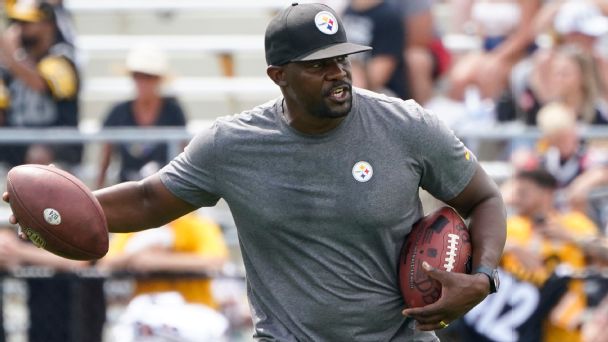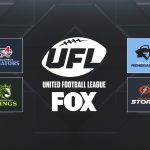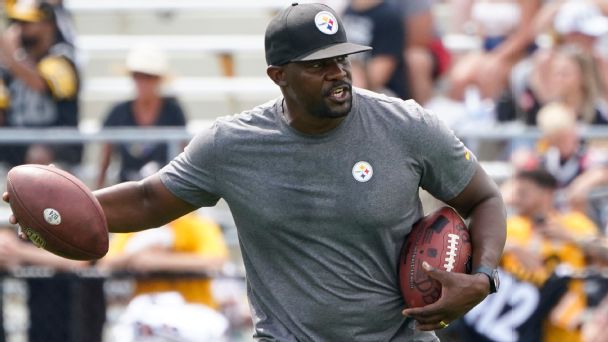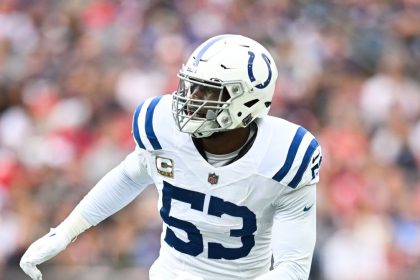
EAGAN, Minn. — Not long after becoming an NFL quarterback, Kevin O’Connell earned a reputation as a future coach. It wasn’t just because of his leadership skills. Early in the 2009 season as a backup with the New York Jets, he started suggesting pass-rush schemes to coach Rex Ryan and his staff.
“He was really good working with Rex at designing schemes to defeat the opponents’ protections,” said Mike Tannenbaum, who was the Jets general manager at the time and is an ESPN analyst. “That’s where he was particularly good. Rex was like, ‘Mike, this guy is the best defensive coordinator in the building, myself included. This guy can call blitzes better than I can.'”
That context seems particularly relevant as O’Connell begins the process of fixing a defense that proved to be the Minnesota Vikings‘ undoing (allowed 25.1 points per game, tied for 29th) in his otherwise successful first season as head coach. The first step was to replace defensive coordinator Ed Donatell with Brian Flores, who spent 2022 as the Pittsburgh Steelers linebackers coach. But in explaining the decision last week, O’Connell indicated he plans to be more involved with the defense than he was in 2022.
Flores’ acumen will undoubtedly be key to any defensive turnaround. But an unexpected part of the journey will be a young head coach learning to exert his influence when necessary and fulfill a core duty for anyone in his position: to coach the coaches.
“I’ve gone through a real thorough process of so many ways that I’ll be better for our team,” O’Connell said. “I want the closest … resemblance to my personality as the head coach of this team to be articulated in how we play. And I think Brian coming in here will give not only the similar football backgrounds and philosophies, but also just the mindset of being ultra-competitors and trying to win that football game each and every Sunday, however, by any means necessary.”
O’Connell hired Donatell last year to install and administer a 3-4 scheme he had been coaching for more than a decade under its architect, Vic Fangio. Donatell, however, stuck to his core tenets even as opponents gashed it on a weekly basis, saying it would take time for players to learn the scheme. O’Connell proved unable to move him away from that approach, even as he described the adjustments he sought in increasingly pointed public statements. At one point late in the season, Donatell said publicly: “We know what we’re doing.”
Flores, who spent two seasons as the New England Patriots defensive playcaller (2017-18) and another three as the Miami Dolphins head coach (2019-21), wasn’t hired to await orders from the head coach. He shouldn’t need to. Rather, Flores said the interview process revealed he was already philosophically aligned with what O’Connell wants. And he seemed to draw the same conclusions as Tannenbaum, Ryan and others from that 2009 Jets staff.
“There’s a great opportunity for me personally and professionally to grow [and] to be around Kevin,” Flores said. “I know he’s known as an offensive coach but in that meeting, but he [showed] he can coach a defense, too. I’ll tell you that right now.”
Flores and O’Connell both used the word “aggressive” to describe their core defensive belief, a catch-all description that almost every football coach uses to describe the preferred style of play. In New England, Flores never held the formal title of defensive coordinator but called plays on game day during his final two seasons. Over that span, the Patriots ranked No. 1 in scoring defense — in part via the NFL’s eighth-highest blitz rate (31%). By contrast, the Vikings ranked 21st in blitz rate in 2022 (21.1%).
In three seasons with the Dolphins, “aggressiveness” manifested in the NFL’s fourth-highest blitz rate (35.6%). The Dolphins did not blitz just for the sake of blitzing, however. In the final two seasons of Flores’ tenure as the Dolphins’ head coach, they led the league with a pressure rate of 34.1% and ranked No. 6 in sack rate (7.0%). In other words, they blitzed effectively, a mix of scheme, opportune timing and personnel implementation.
“I like to be aggressive. Not reckless,” Flores said. “There’s method to the madness. There’s a rhyme and reason, whether it’s down and distance, field goal position, etc. But, I think it’s not about me or Kev. It’s about the players. It’s about their ability to execute. It’s about our ability to teach and coach and put them in right positions and get them doing things we think they can execute. And we’ll do our very best to do that.”
Flores indicated he will maintain the Vikings’ 3-4 alignment in base defense, but much of his approach will depend on a personnel outlook that will unfold over the coming weeks. Heavy blitzing can increase a reliance on man-to-man defense and requires a skill set the Vikings did not utilize much last season; they used zone nearly 80% of the time.
Their top three cornerbacks from 2022 — Patrick Peterson, Duke Shelley and Chandon Sullivan — are all free agents. A pair of 2022 draft picks, Andrew Booth Jr. and Akayleb Evans, finished the season on injured reserve. Nose tackle Dalvin Tomlinson is a free agent, and there are four 2022 starters under contract for next season who are all older than 30: linebackers Za’Darius Smith, Eric Kendricks and Jordan Hicks, and safety Harrison Smith.
O’Connell acknowledged the Vikings likely will need to “go add some pieces to ultimately achieve the goals of wanting to be versatile and wanting to be multiple.” But during an introductory news conference last week, he could not contain his excitement at the idea of having an “attacking mindset of taking away some of the things the opponent does well” after a year of watching his defense sit back to avoid giving up big plays.
O’Connell wasn’t the first rookie coach to entrust one side of the ball to a veteran coach, or fail to influence necessary in-season changes, especially as he focused on his offensive expertise. But firing a defensive coordinator after one season required admitting his mistake. There is no guarantee O’Connell’s defensive vision will work, through Flores or anyone else, but there is almost no chance of fielding a successful defense when the head coach wants one thing and the defensive coordinator is plowing ahead with another.
In that respect, the Vikings have already improved their defense. O’Connell said, “I feel very strongly that I’ve learned a lot” about both managing coaches and the team’s defensive approach. He has a better sense of how he wants to budget his time between offense and defense, he added, and will be bold enough to assert himself if necessary with a defensive coordinator who, at the very least, shares his football values.
“As we got into just random questions throughout the interview process, I kept on hearing things where our football foundation and philosophies are very, very similar,” O’Connell said. “And it doesn’t matter if you’re talking offense or defense, special teams. Time and time again, characteristics of not only our team but maybe my personality, how I want our team to be coached, just kept coming out in a real organic, natural way. And that was a really positive thing for me.”










